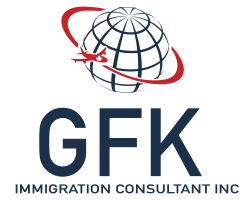Powered by  Translate
Translate

Stricter Canada Work Permit Rules: The Canadian Government has announced new changes for Canada work permits under the Temporary Foreign Worker Program that will take effect on October 28, 2024, and November 8, 2024.
These changes are aimed at strengthening worker protections, enhancing program integrity, and prioritizing the hiring of Canadian workers.
Employers who depend on foreign talent will need to adhere to new requirements to continue accessing the program.
Below is an in-depth overview of these reforms and what they mean for employers, foreign workers, and the Canadian labour market.
Table of Contents
Effective October 28, 2024: New Business Legitimacy Requirements
Starting October 28, 2024, employers can no longer use attestations from accountants or lawyers to prove the legitimacy of their business.
- The Temporary Foreign Worker Program will instead rely on information-sharing agreements with provincial and territorial authorities, along with existing employer registries, to verify the legitimacy of businesses.
- These reforms aim to prevent misuse and fraud within the program by ensuring that only genuine employers with legitimate job offers can hire foreign workers.
Effective November 8, 2024: Higher Wage Thresholds for High-Wage Stream Jobs
- The starting hourly wage for foreign workers hired through the high-wage stream will be 20% higher than the current median wage in the applicable province or territory.
- This represents an hourly wage increase of between $5 and $8 per hour, depending on the region.
- Jobs that do not meet this wage threshold will now be reclassified under the low-wage stream, which imposes stricter rules and additional obligations on employers.
This wage adjustment is intended to reduce dependence on foreign labour by making more employers shift towards hiring domestic workers.
As a result of the increased wage requirements, 34,000 positions are expected to shift from the high wage stream to the low wage stream.
This shift could also mean 20,000 fewer approvals through the TFW Program as a whole, based on labour market conditions and new program policies.
Stricter Rules for Employers in the Low-Wage Stream
The low-wage stream already comes with several stringent employer requirements:
- Transportation and Housing: Employers must provide return transportation for workers to their country of origin and ensure or arrange suitable accommodation.
- Recruitment Efforts: Employers must conduct two additional recruitment methods to target Canadian workers with the appropriate skills and experience.
- Hiring Limits: Employers in non-essential sectors are limited to hiring no more than 10% of their workforce through the TFW Program (exceptions exist for high-demand sectors such as agriculture and healthcare).
- Regional Unemployment Restrictions: The government will not process LMIA (Labour Market Impact Assessment) applications for low-wage positions in Census Metropolitan Areas (CMA) where the unemployment rate is 6% or higher.
These stricter conditions aim to reduce reliance on low-wage foreign labour and ensure that domestic workers are given priority access to job opportunities.
Unemployment Statistics
Below are the recent unemployment rate statistics in Canada.
- Youth Unemployment: As of September 2024, the unemployment rate among youth was 13.5%, more than double the national average of 6.5%.
- Indigenous Workers: In 2023, Indigenous individuals faced an unemployment rate of 7.7%, compared to 4.5% among non-Indigenous Canadians aged 25-54.
- Persons with Disabilities: In 2022, the employment rate for individuals with disabilities was 65.1%, compared to 80.1% for those without disabilities.
The government aims to encourage employers to tap into these under-represented talent pools and reduce dependency on temporary foreign workers.
The TFW Program reforms are aligned with these objectives to boost economic participation among Canadian workers while ensuring foreign workers are only hired when absolutely necessary.
Stricter Canada Work Permit.
Impact on Employers and Workers
The changes to the TFW Program will likely have significant effects on both employers and workers.
- Higher Costs for Employers: Employers in the high wage stream will need to offer higher wages to meet the new wage thresholds, potentially impacting their profitability.
- Reduced Program Access: The stricter requirements in the low-wage stream may reduce the number of LMIA approvals, especially in sectors not classified as high demand.
- Encouraging Domestic Hiring: The government hopes that these reforms will encourage employers to recruit from underrepresented groups within Canada.
The upcoming changes to the TFW Program, effective on October 28, 2024, and November 8, 2024, represent the Government of Canada’s commitment to balancing labour market needs with worker protections.
By increasing wage thresholds, tightening employer requirements, and enhancing program oversight, the government aims to reduce misuse of the TFW Program and prioritize domestic talent.
These reforms reflect a broader shift towards creating a more sustainable labour market where underrepresented groups, including youth, Indigenous persons, and people with disabilities, have greater access to job opportunities.
As the Canadian economy continues to evolve, the government will monitor the impact of these changes and make further adjustments as needed to maintain fairness and integrity within the TFW Program.
With these new rules, employers must adapt quickly to remain compliant, while workers—both domestic and foreign—will benefit from stronger protections.

The Government of Canada has made it clear: only those employers with genuine labour needs and a commitment to fair treatment will be able to access the TFW Program moving forward.
GFK Immigration
Gboyega Esan RCIC R708591
Phone: +1 (647) 225-0092
#foreignworkers #wages #Indiams #Racism #PR #StudyPermit #CanadaImmigration #PostGraduateOpportunities #GFKImmigration #StayInCanada #Express #ExpressEntry #draws #Immigration
